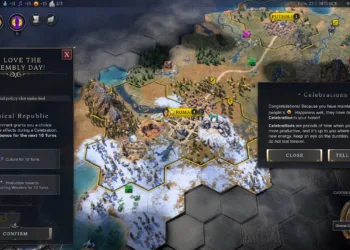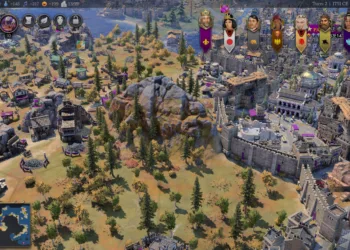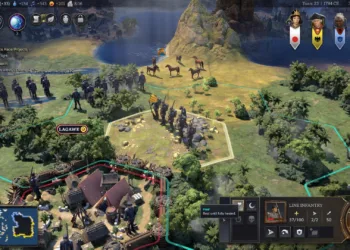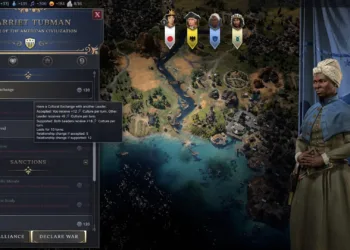Understanding how to trade in Civilization 7 and establishing trade routes with merchants is essential for enhancing your economy and diplomatic ties. Trading not only provides additional resources but is also a crucial step toward achieving an Economic Victory in the game. Although the trading system might seem a bit overwhelming at first, it operates differently than in previous installments of the series. This guide will explain how to acquire merchants in Civ 7, set up trade routes, and what resources you can gain from trading.
If you’re seeking more general advice, check out our Civilization 7 tips and tricks for building a successful empire.
How to Acquire Merchants in Civilization 7
In Civ 7, you can train merchants after researching a specific civic or technology. When you advance to a new age, you will need to unlock merchants again by researching a different bonus. Here’s what you need to unlock in order to train merchants:
- Antiquity Age: Research Mysticism and Discipline in the Civic Tree, followed by the Code of Laws
- Exploration Age: Research Economics in the Civic Tree
- Modern Age: Research Steam Engine in the Tech Tree
Once you have unlocked merchants, you can train them as part of your city’s production or purchase them with gold at any town or city.
How to Set Up Trade Routes in Civilization 7

It’s best to identify another settlement for trading before you train a merchant. You can send them to the city or town of another leader, so scan the map for suitable destinations. You can also trade with Independent Powers, but you’ll need to be their suzerain in order to establish a trade route. Once you have several potential trading partners in mind, choose a city or town from which to train a merchant.
After training a merchant, a toolbar will appear on the side of the screen when you select them, showing all potential settlements for trade and the resources they offer. This feature is useful for deciding where to send your merchant, as you can click on a settlement to navigate directly to it.
You must wait for the merchant to reach the selected city or town before you can establish the trade route. Moving your merchant might take a few turns depending on the distance. Once they arrive, you will receive a prompt to set up the trade route.
Understanding Trade in Civilization 7

Once you establish a trade route with another settlement, your merchant will travel back to your settlement, carrying a portion of the resources. In return, the other leader will earn gold, and they can send their own merchants back along the same route, fostering a mutually beneficial arrangement.
The turn after each trade, a screen will display the resources the other settlement is offering. You can then choose which resources your merchant will bring back to one of your towns or cities. There are three types of resources: Empire Resources (available to your entire empire), City Resources (limited to a single city), and Bonus Resources (usable in either a City or Town).
The number of trade routes you can establish is largely dependent on your relationship with the other leader. To enhance your trading opportunities, use the Diplomacy screen in Civ 7 and select the option to Improve Trade Relations. Both leaders must agree to this, so if the other leader isn’t fond of you, they might refuse. Maintaining good relations is crucial.
The design of the Civ 7 trade system aims to minimize the maintenance required, reducing the need for constant management. However, it’s advisable to monitor your trade routes, as merchants can be targeted by enemy forces. Consider placing military units along these trade routes for protection if necessary.






